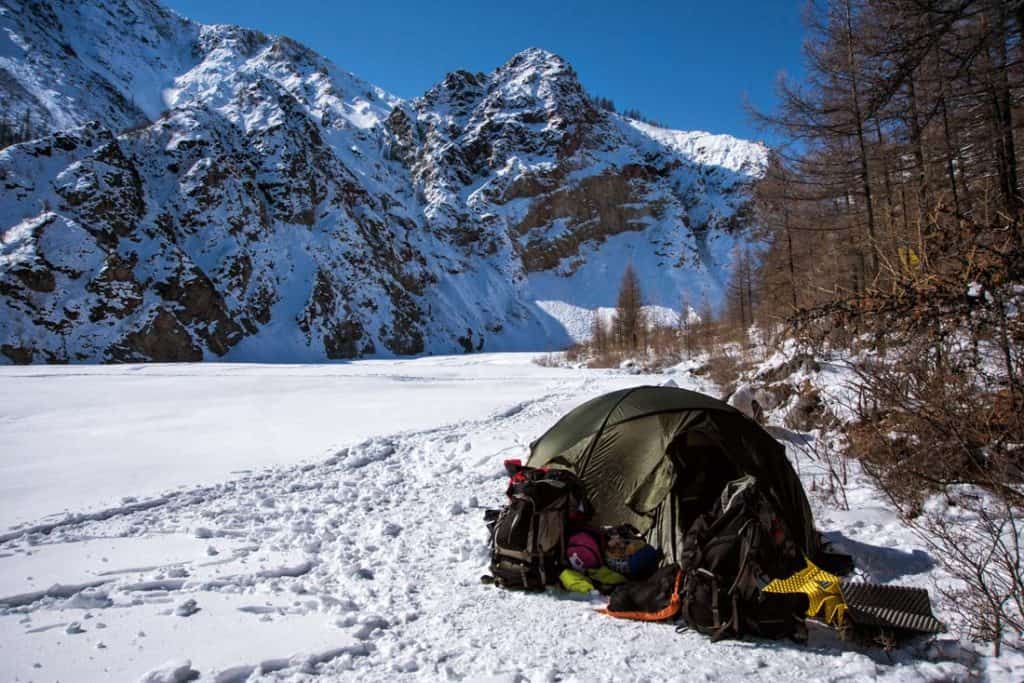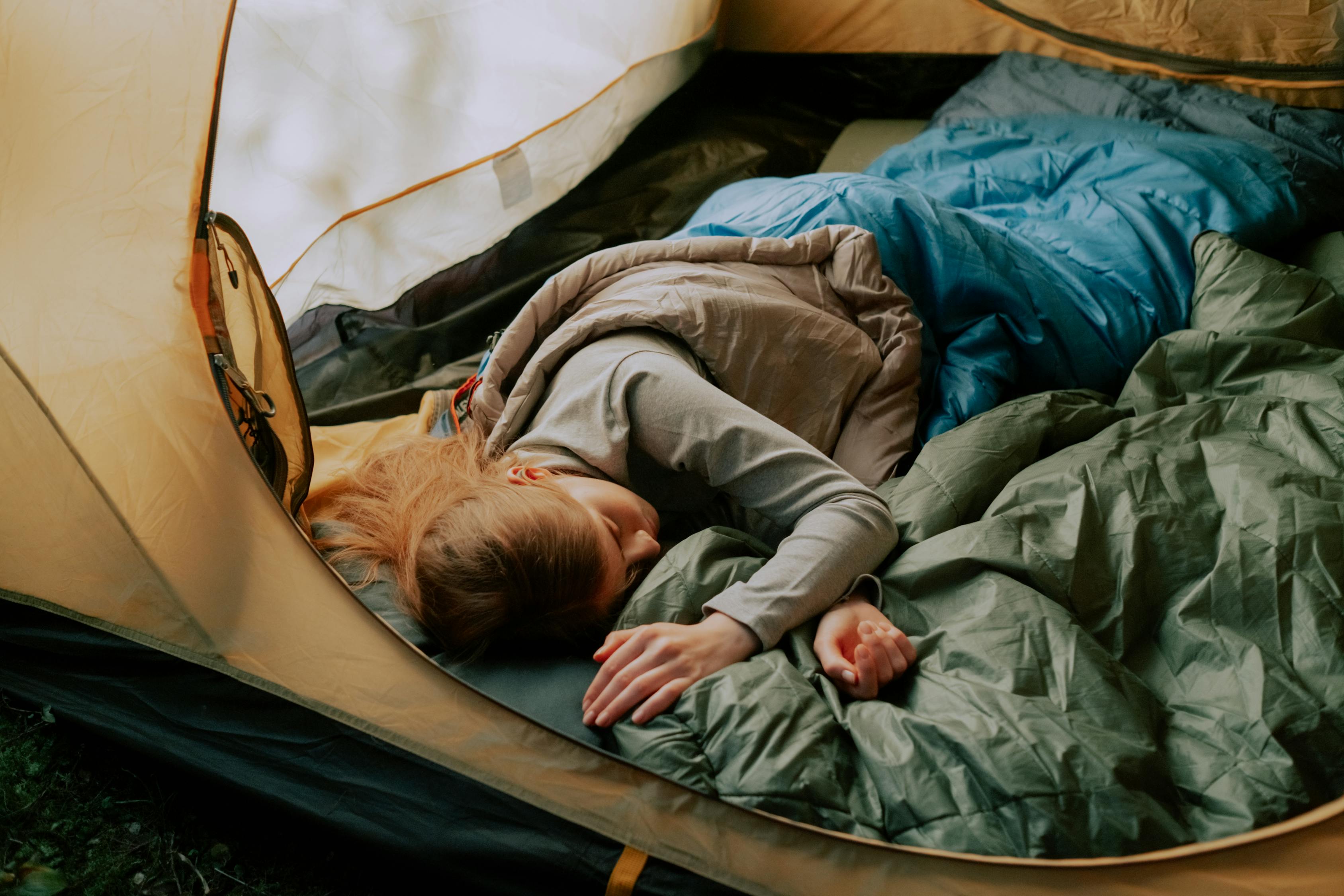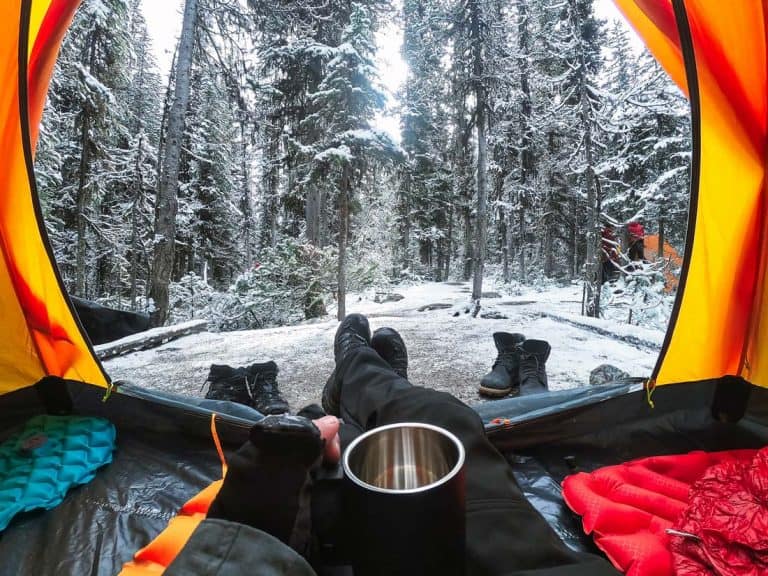For those who love the outdoors, camping is an incredible way to connect with nature while experiencing the joy of travel and discovering new places. Though some folks opt for more of a ‘glamping’ – or glamorous camping – experience, traditional adventure seekers enjoy the thrill of sleeping in a tent.
Getting quality rest while traveling is important, but tent camping presents its own unique set of challenges, most notably the weather. Crisp days can easily turn into extremely cold nights, which is why you need strong protection against cold temperatures.
What You Need For Tent Camping in 30-degree Weather
The good news is that there are ways to help get a quality night’s rest while camping in cold weather. We’ll share tips on how to safely spend the night outdoors and sleep better when the temperatures get as chilly as 30-degrees so that your only concern will be where to take your tent next.
Buy a Cold Weather Sleeping Bag
Tent camping when the weather is cold starts with choosing the right gear and not all sleeping bags are created equal. Sleeping bags have specific temperature ratings to help you know how effective they should be at keeping you warm in different weather conditions. So, if you’re planning for tent camping in 30-degree weather, be sure to look for a sleeping bag with that temperature rating on the high end. Most 3-season camping bags are designed for cooler climates, but we suggest reading the reviews to see how they hold up in subfreezing temperatures.
Sleeping pads
To help protect you from the frigid ground underneath, you should also bring along some sleeping pads for your trip. These are designed to prevent heat from transferring from your sleeping bag onto the ground below you.
When browsing for sleeping pads, you may notice that the product details include an R-value. This is important because it’s the measure of how thermal resistant the pad is. These values range from 1 to around 7, and the higher the number, the more resistant it is. So, if you’re planning on camping in 30-degree weather, you should choose a pad with a higher R-value. Typically, pads that have an R-value of 5 or higher are designed for winter camping. Even if you’re camping during the Fall or Spring but tend to run cold, a high R-value pad may work better for you.
Strong tent
Extremely cold weather also means you may be dealing with snow, wind, and rain, so you need to be well-guarded against the elements. Be sure to purchase a good-quality 4-season tent that’s specially designed for these conditions. It might not be a bad idea to purchase a tent with a fly that will keep condensation from permeating the barrier.
Also read: Hiking Insights for Best Camping Tents & Maximum Protection
Air mattress
For those with back pain, you may want some gear that provides extra support while you sleep. In this case, consider investing in an air mattress. There are plenty of high-quality air mattresses that are designed for outdoor use and provide additional height from the ground. Be sure to look for a mattress that’s waterproof and provides a non-electric air pump. Depending on the camping trip you have planned, you may also want something that’s not too heavy and easy to transport.
Pack Warm Layers
When the temperature drops, it’s good to dress in multiple layers so that you can adjust to your desired comfort level. This is true whether you’re sleeping or outside the tent. Thermal underwear is a smart choice for a base layer since it helps wick away moisture to keep you dry and insulated. For a second layer, consider warmer fabrics like fleece or wool that work well in chilly weather.
We suggest wearing enough layers to stay warm, but not enough to sweat, which could lead you to wake up freezing.
Test the gear before your trip

If you’ve done your homework, you should feel confident in your selected camping gear. That being said, it doesn’t hurt to test out your equipment beforehand. You can try out your camping gear with a little staycation in your backyard overnight, and if you’re not satisfied, you still have time to switch things out for different products before your trip.
Also read: Your Camping Gear is Essential for Relaxing
Tips For Sleeping Well in Tent Camping in 30-degree Weather

In addition to having the right gear, there are other ways you can set yourself up for success and sleep well during your camping trip. These tips should not only help you fall asleep faster but have a more peaceful, interrupted rest.
Don’t go to bed hungry or stuffed
Hunger pains can certainly keep you up at night but so can an uncomfortably full stomach. Health experts suggest avoiding big meals 2-3 hours before going to bed. If you do find yourself hungry close to bedtime, choose a light, healthy snack to curb your hunger like an apple or some whole-wheat crackers.
Avoid alcohol and caffeine
Avoiding caffeine seems like an obvious tip but some folks may feel inclined to have a beer or two around the campfire. Alcohol can help you feel sleepy, but it could also cause you to wake up more during the night. This is because alcohol can decrease the amount of deep sleep you get, making you more alert and prone to waking up. Alcohol also relaxes your muscles, increasing your risk of developing Sleep Apnea, a potentially dangerous sleep disorder in which breathing continually starts and stops while you’re asleep.
Get active during the day
Want to sleep more soundly while camping? Get active during the day. Experts say daily exercise can help enhance the effects of natural sleep hormones like Melatonin. Just be sure to avoid too much activity close to bedtime since it can give you an energy boost and keep you up at night.
Don’t use your phone or tablet
It might be tempting to go through your phone and look at photos you took earlier in the day, but experts say the light emitted from tech devices suppresses Melatonin, which helps us fall asleep. On sleep-deprived the off-chance you have wifi, checking your email or social media stimulates your brain, making it that much harder to relax and rest. It’s recommended you cut off any screen time at least one hour before you go to bed.
Have a warm beverage
Just because alcohol should be avoided, doesn’t mean you can’t have a drink around the campfire. Instead of alcohol, warm up some water and have a cup of caffeine-free tea. When we sleep, our core body temperature drops, but according to research, a more rapid drop in core temperature should help you fall asleep faster and get into a deep sleep. So, not only will a hot drink warm you up just before bed, but it should help initiate a quicker body temperature drop for better rest.
Can Camping Help Sleep Better?
Camping has a lot of great physical and mental benefits, but did you know it could also help you sleep better?
Our bodies run on a 24-hour sleep-wake cycle known as a Circadian Rhythm. A 2017 study revealed that even just a weekend of outdoor camping free of screen time and electrical lighting can adjust this internal clock as much as an hour and a half earlier, making it easier to go to bed and wake up earlier. This could be very helpful for folks who tend to stay up late and feel sleep-deprived the next day.
Also read:
